Along with insight on Hambre Cero ('Zero Hunger'), cables released by WikiLeaks provide previously unreported dark sides in inner management of social welfare programs launched by the Ortega government. This article reports the way social welfare programs are dealt with in the midst of budget deficits based on the cables, mainly focusing on one of the major social welfare projects of Ortega government, Programa Amor ('Program of Love') and other social welfare programs for street children in 2007-2010.
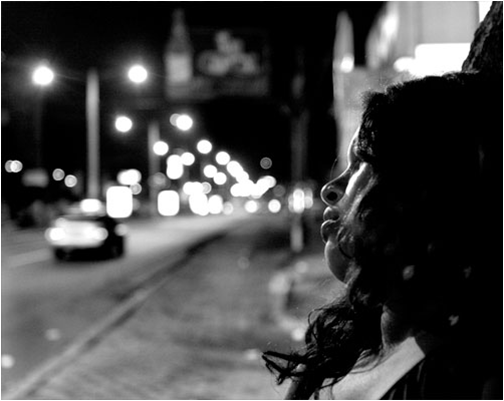
What is Programa Amor?
Programa Amor is one of many social welfare programs that President Ortega and his FSLN party presented to the public in 2007. The stated goal of the program was to provide education and other opportunities to 25,000 street children to break away from some of the worst forms of child labor. Programa Amor has been headed by the First Lady Rosiario Murillo and Ministries of Family, Health, Education, and the government.
Cable: Concerns of Ministry of Family insiders on Programa Amor; It forces children to their home which drive them back to the street
09MANAGUA1318 reveals that people inside the Ministry of Family (MiFamilia), which is a focal point of implementation of Programa Amor, confessed their concerns on the program’s general operating style. The program sends children back to their home in the evening after daytime education courses of the shelters, and this poses a serious threat to the children, since most of them are forced to find places at night other than their homes, which they originally ran away from.
Hambre Cero (“Zero Hunger”) has been an ambitious social welfare program that president Ortega’s FSLN(Sandanista National Liberation Front) party declared in 2007. More than 3 years after that, cables released by WikiLeaks reveal hidden mechanisms and progression of the programs throughout 2007-2010.
Hambre Cero ‘veiled in secrecy’ in discriminatory selection of beneficiaries with no independent monitoring systems
Hambre Cero(“Zero Hunger”) is a state-led welfare program to help ‘eradicate poverty until 2012’ by providing Productive Parcels, which is a packet of livestock, goods, and services including various training needed to establish a self-supporting production of food in the poor areas. The government’s goal is to reach 75,000 families. And since the reported number of people living below the poverty line is 2,300,000 individuals in the country, the process of selecting beneficiaries is an important factor that should be impartial and transparent. However, recently released cables detail how the progression of planning the program and defining standards had been opaque since the first step.
Cables released from WikiLeaks provide important material in the ‘evidence war’ between ICC prosecutor Luis Moreno-Ocampo and Kenyan politician William Ruto.

The cables support Moreno-Ocampo’s arguments that exposing information about critical witnesses would be a severe threat to them and that allegations on Ruto’s involvement in the extrajudicial killings in 2007-2008 post-election violence are recognized by the U.S. embassy, which is far from ‘rubbish rumors picked up by rag blogs’ as Ruto criticized the evidences the allegation is based on.
William Ruto, the Waki Commission, and the tragedy of extrajudicial killings during 2007-2008 post-election violence in Kenya
Extrajudicial killings during 2007-2008 post-election period in Kenya has been condemned internationally, mainly by the UN Special Rapporteur on extra-judicial killings, Alston. WikiLeaks received the Amnesty 2009 New Media Award due to its notable work on leaking and reporting about the hundreds of extrajudicial killings tacitly approved by the Kibaki government and widely conducted by Kenyan Police force working with armed militias.
Among the leaked material is a report titled The Cry of Blood: Report on Extra-Judicial Killings and Disappearances, which is written by the Kenya National Commission on Human Rights (KNCHR). The UN acknowledged the report’s credibility after confirming that the information found in the report is backed by investigation results of other civil society organizations and that of the preliminary research done by UN Special Rapporteur team in 2009.
Below are photographs taken as evidences of extrajudicial killings in the report:
 Update: The edited podcast is posted along with a full transcript of Edward Fox of ColombiaReports.com's interview.
Update: The edited podcast is posted along with a full transcript of Edward Fox of ColombiaReports.com's interview.
The guest for this episode of "This Week in WikiLeaks" was Edward Fox, who is with Colombia Reports. He has been editing and organizing releases of the US State Embassy cables that deal with Colombia. On the show, we will talk about how the cables are impacting Colombia, what has been revealed and discuss some specific revelations concerning FARC, the US-based Drummond Coal corporation, the DAS wiretap scandal and, finally, the revelation that the US has been using drones in Colombia since 2006.
Following the interview with Fox, the show wrapped with a brief look at the cables from Israel that are being released and what they are revealing. WL Central has covered what they show about Israeli officials’ views on Hamas in Gaza. There is much more to hone in on, as another aspect of the cables that deserves attention is fear and trepidation on Iran. The cables also appear to affirm some aspects of Al Jazeera English’s “Palestine Papers,” which gave the impression that the Palestinian Authority can be very deferential toward Israel and often take action that pretty much betrays the people of Palestine’s interests or well-being.
Here's a widget you can click play on to listen to the episode:
Or, you can go to this page and click on episode on Colombia that appears in the CMN News list (it is likely the most recent one). Or, you can search for the episode on iTunes. Search for "CMN News" and it will appear to download.
 Violence has escalated significantly in the past month between Israel and Hamas in the Gaza Strip. The Itamar attack, which involved the stabbing of five members of a Jewish family by two individuals whom were believed to be Palestinians, and arms found, which Israel believed were being smuggled from Iran, inflamed tensions further. As some suggest Operation Cast Lead II has begun, Haaretz, Yedioth Ahronoth and Al Akhbar have begun to release US State Embassy cables on Israel from WikiLeaks.
Violence has escalated significantly in the past month between Israel and Hamas in the Gaza Strip. The Itamar attack, which involved the stabbing of five members of a Jewish family by two individuals whom were believed to be Palestinians, and arms found, which Israel believed were being smuggled from Iran, inflamed tensions further. As some suggest Operation Cast Lead II has begun, Haaretz, Yedioth Ahronoth and Al Akhbar have begun to release US State Embassy cables on Israel from WikiLeaks.
Haaretz reports on Hamas and the Gaza Strip. According to a November 2009 cable, Israel has no clear or consistent policy and Israel has refused US requests to “allow more goods into Gaza to assist the population.” Also, months after Operation Cast Lead, Embassy Tel Aviv reported, “Israelis are enjoying the best security situation since the outbreak of the second intifada [in 2000], the result of Israeli intelligence successes in destroying the suicide bombing network in the West Bank as well as good security cooperation with the Palestinian Authority’s security forces.”
This cable [09TELAVIV2473] features Major General Yoav Galant, the Israel Defense Forces general responsible for Gaza and southern Israel, commenting:
Cables on sex trafficking in Armenia reveal frank contempt toward victims and contradictory statements from the law enforcement officials on collusion in sex trafficking. The Republic of Armenia General Prosecutor's Office released an explanation on 14th February 2011 on the corruption allegation mentioned in a cable. The explanation in the official press release is contradicted by information on reports of Armenian investigative journalists and TIP reports published by the U.S. Department of State.
Concerning the information given to the US diplomats by the prostitutes that the employee of the RA General Prosecutor’s Office A. Yeremyan committed violations, it is informed that at that time the RA Prosecutor General tasked to conduct investigation, a interdepartmental committee was formed and all the appeals were checked which were not confirmed based on the conclusions of the interdepartmental committee and the results of the investigation.
The 'violations' mentioned above are mentioned in the cable 06YEREVAN1091, which was written in 2006. This assertion about the 'investigation' against complicity of an official A.Yeremyan has been proven to be false ever since 2006, the year the incident occurred, mainly by the Trafficking in Persons Report (TIP) published annually by the U.S. Department of State. The following are evidences that the General Prosecutor's Office did nothing meaningful on the allegation in 2006 until this day:
2006 TIP report:
The government failed to vigorously investigate and prosecute ongoing and widespread allegations of public officials' complicity in trafficking. Victim-blaming and lack of sensitivity for victims remain a problem among Armenian officials, particularly in the judiciary.
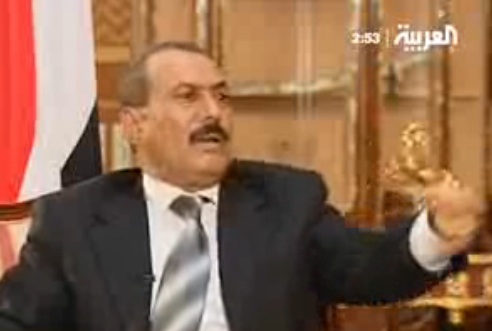 Cables recently posted by the Spanish news organization El Pais provide more details on the manic and overbearing Yemen President Ali Abdullah Saleh. The cables appear just as Saleh seems to be closer to transferring control of Yemen to another leader, who can diffuse the growing revolt against his regime and as The Nation’s Jeremy Scahill, one American journalist who has not shied away from using the WikiLeaks cables to inform his work, publishes a major story on what is at stake for the US in Yemen.
Cables recently posted by the Spanish news organization El Pais provide more details on the manic and overbearing Yemen President Ali Abdullah Saleh. The cables appear just as Saleh seems to be closer to transferring control of Yemen to another leader, who can diffuse the growing revolt against his regime and as The Nation’s Jeremy Scahill, one American journalist who has not shied away from using the WikiLeaks cables to inform his work, publishes a major story on what is at stake for the US in Yemen.
Over the weekend, widespread rumors suggested Saleh would be stepping down. But, by Sunday, March 27, Saleh’s zealous hold on power only tightened in the face of this notion that he would no longer be ruling Yemen. On the American Sunday morning talk show “Meet the Press,” US Secretary of Defense Robert Gates said his fall or replacement by a weaker leader would be “a real problem” for US counterterrorism operations, pretty much solidifying the fact that Saleh would not be leaving yet.
A cable from August 31, 2009, illuminates a leader, who has grown increasingly unstable in recent years. One Member of Parliament explains to then-US Ambassador to Yemen Stephen Seche how the country has serious problems but when he talks about them, Saleh gets angry and tells him to go.
Next, a news organization in Nigeria, has been granted access to all of the US State Embassy Cables from Nigeria. The organization began covering the cables this month.
Unfortunately, WL Central has not really covered the revelations coming out of Nigeria (and that should hopefully change in the coming days). For now, here is a video with Olu Jacob, a journalist from Next, talking about the Nigerian cables and how Next has gone about covering the revelations on STV.
WL Central continues the coverage of Greek diplomatic cables, revealed by SKAI media group and Kathimerini newspaper. Today’s cables refer to the internal party workings of PASOK from 2007 until today, with the last cable being especially interesting as it reveals key and unknown people behind the Prime Minister Papandreou.
PASOK, whose leader is George Papandreou, now Prime Minister of Greece, was the main opposition party during the period 2007-2009 and from 2009 until today it is the ruling party. PASOK self-indentifies as a socialist party. However, since PM Papandreou’s administration orchestrated Greece’s loan from the International Monetary Fund and the EU, and its subsequent impact on the living standards of Greeks, its popularity diminishes at an unprecedented pace.
PASOK’s leadership crisis; “Knives sharpened” states the American ambassador
“PASOK’s defeat in the September 16 [2007] election has prompted a furious internal debate over the party’s leadership” notes the American ambassador in the cable dated October 11, 2007. Immediately, after the defeat of PASOK in the national elections from the right-wing party New Democracy, PASOK’s president George Papandreou, was immediately challenged by former colleague Evangelos Venizelos.
Among others, the embassy’s attaché notes that even if Papandreou wins the internal party elections, his supporters believe that the party needs a leadership change and also that the best people for the presidency aren’t even candidates. He states that much of Papandreou’s support is lukewarm, and that he was considering resigning.
In an almost prophetical tone the cable continues: “Papandreou declared PASOK the party of "radical platforms;"[…] He sought, he said, a meaningful political mandate that would allow him to reconstruct the party and be ready for the next general election campaign”.
He concludes by saying that “Venizelos can win an election – But Papandreou can win the party”.
WL Central continues its coverage of Greek diplomatic cables, published by SKAI media group and Kathimerini newspaper. Today’s cables are focusing on the previous government of Greece, the right-wing New Democracy, with 2 cables on the internal workings of the government and 1 cable referring to the President of FYROM and the naming issue.
American ambassador: PM Karamanlis is the “Buddha” of Greek political scene.
In a cable dated October 3rd, 2008, the US embassy in Athens appears to be worrying about the various political scandals plaguing the Karamanlis administration, as well as his marginal parliamentary majority.
Daniel Speckhard, the US ambassador, notes that despite the scandals, and the internal party troubles, Karamanlis pushed through the parliament the controversial privatization of the national air carrier Olympic Airlines as well as a bill protecting homeowners against foreclosures due to the economic crisis.
The ambassador then characterizes Karamanlis as the “Buddha” of Greek politics “because he keeps his own counsel and rarely indicates what he is planning”. “The Buddha” he continues “is likely always contemplating ways to strengthen his position”.
The former Foreign Minister is closer to PM Karamanlis than the current. Also former FM’s thoughts on FYROM’s naming issue.
During the Karamanlis administration, the US embassy in Athens, sends a cable, dated August 20, 2007, noting that former Foreign Minister Moliviatis was not only closer to the PM than the then Foreign Minister Bakoyianni, but that he is actually the “unofficial foreign policy adviser”.
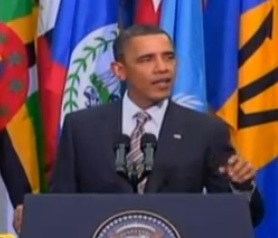 US President Barack Obama, currently on a trip through Latin America, visited Chile yesterday to further expand trade relations and military and security cooperation between the two countries. He did not intend for his visit to be about the US’ history of interfering in Chile’s domestic affairs or, for that matter, human rights. But, the first question President Obama was asked was the following: Is the United States “willing to ask for forgiveness for what it did in those very difficult years in the ‘70s in Chile?”
US President Barack Obama, currently on a trip through Latin America, visited Chile yesterday to further expand trade relations and military and security cooperation between the two countries. He did not intend for his visit to be about the US’ history of interfering in Chile’s domestic affairs or, for that matter, human rights. But, the first question President Obama was asked was the following: Is the United States “willing to ask for forgiveness for what it did in those very difficult years in the ‘70s in Chile?”
President Obama answered, “I think it’s very important for all of us to know our history. And obviously the history of relations between the United States and Latin America have at times been extremely rocky and have at times been difficult.” But, “I think it’s important, though, for us, even as we understand our history and gain clarity about our history, that we’re not trapped by our history.”
Furthermore, President Obama said he could not “speak to all of the policies of the past” but could “speak certainly to the policies of the present and the future.” As he noted that the US has supported democratic reform in Chile for two decades, President Obama refused to acknowledge the true history of US relations with Chile, a history that involved supporting Gen. Augusto Pinochet in a CIA-backed coup in 1973.
President Obama may not want to get “trapped” in a discussion that leads him to have to take responsibility for the country, which he currently presides over, but files released between 1998 and 2003 show, according to investigative reporter Peter Kornbluh, “The US created a climate of a coup in Chile, a situation of chaos and agitation.”
The US ambassador on the state of Greek mainstream media.
Charles Ries, the then US ambassador in Athens, comments on the “incestuous” state of Greek media and newspapers. In a cable dated July 13, 2006 he notes that although at a first glance Greek media appear orderly arranged with constitutional guarantees in place, much like “the media in the U.S”, a closer inspection, “reveals a Greek media industry controlled by business tycoons whose other successful businesses enable them to subsidize their loss-making media operations”.
He states characteristically that Greece has the triple amount, or even more, of newspapers, magazines, radio and TV stations, compared to Portugal which has the same population. He also says that, due to the lack of newspaper subscriptions and the fact that newspapers have to sell themselves from newsstands, “even the occasional calm and partially accurate story will have a misleading or untrue headline that often has nothing to do with the story”, often using DVD and book giveaways as buying incentives.
Concerning the state of internet journalism he states that “the same media companies that own newspapers and broadcasting stations have established internet news portals, but they have not taken off”. Specifically, “there are no "Salons" or "Drudge Reports"”.
Although, he continues, the public generally distrusts the media, there are high levels of anti-Americanism “because people like to vent their frustrations”. However, he states, in a deeper level “you will find that the public is generally content with the decisions the government makes, even those where Greece and the U.S. are allied“.
He then refers to the ethnocentricity that prevails in Greek media, with the problems of the average Greek consuming a great portion of news and with foreign developments receiving a very limited and scarce coverage.
As WL Central reported earlier, the Greek SKAI media group has access to all of the US state cables and has begun reporting on them. These are WL Central articles based on the cables being released from SKAI.
Greek Riots of December 2008 – What happened and how they impact U.S. interests.
In the cable dated December 18th 2008, the American ambassador in Athens describes the social and other causes that lead to turmoil in the Greek capital after the murder of the 16 year old Alexis Grigoropoulos by a police officer.
Daniel Speckhard criticizes PM Konstantinos Karamanlis, talking about "lack of Karamanlis", while, referring to the causes of the unrest, he claimed that the Greek media have covered the events of the assassination "irresponsibly and inflammatory". Moreover, he called the two parties of the Left, Communist Party and SYRIZA "dinosaurs". Finally, he characterized the Greek security forces as “demoralized” and “weakened by post-junta limits and public distrust”.
He continues with a current assessment of the ruling party, noting its reluctance to push through reforms and the resistance it encounters from various interest groups.
He concludes noting that the Karamanlis’ government will now be even more inward-looking than before and that the Americans will now have to “monitor aggressively the growing domestic terrorist threat”.
Comments about the Papandreou government
In November 2009, the US ambassador sent to the State Department, the 09ATHENS1661 cable in which he describes the first seven weeks of Papandreou government. He refers to the operating mechanism of the PM’s office, the governmental policies that didn’t prosper and the dichotomy in the political culture of the ruling party’s executives.
Yesterday, the Greek newspaper "Kathimerini" started publishing US state cables relating to Greece with a six page review of the cables focused on Greek political figures and current items of interest. Tonight Greek TV station SKAI TV and web site skai.gr will also begin reporting on the cables.
"The New Files" newsprogram along with SKAI TV, skai.gr and the daily "Kathihimerini" has gained access to all 250.000 US embassy cables leaked to Wikileaks exclusively for Greece. The access has been granted by the Norwegian newspaper Aftenposten. More on "The New Files" broadcast Monday March 21 at 23.00.
SKAI TV, skai.gr and the newspaper Kathimerini are all part of the SKAI Group, one of the largest media groups in Greece.
Greece had a mini-Wikileaks scandal on January 13, 2011 when Regional Development Minister Michalis Chrysochoidis was quoted in a cable telling former US ambassador in Athens regarding Greece’s National Intelligence Service (EYP): “EYP is nothing. It does not serve its mission of protecting Greece and in fact is dangerous to national security because of its many shortcomings, not least of which is a unionized labor force.” He is also reported as saying that Greek police know the identity of virtually all members of domestic terrorist groups but do not have the evidence to prosecute them.
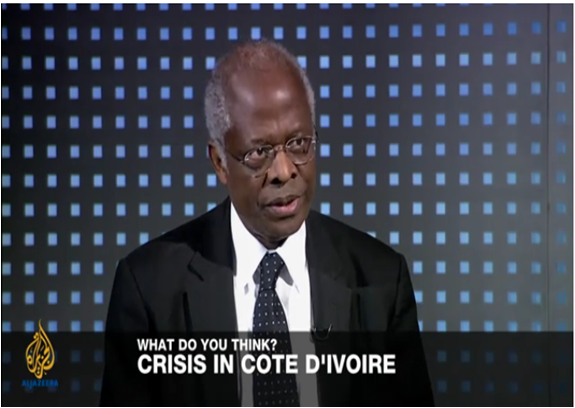
Douoguih: The real reason we’re watching a tragedy in Ivory Coast is that president Gbagbo is a democrat; he is a modern Mandela. He spent 30 years in the opposition. He is not a violent man. He doesn’t have a bank account outside the Ivory Coast. He doesn’t own property anywhere. But his vision is that it is the true emancipation of Ivory Coast. France is afraid of that, because all the former colonies would follow his example, and France would be a big loser. That is what’s at stake in Ivory Coast right now.
Kahn: Let me ask you why they(U.S, UN and France) want Ouattara to be the president?
Douoguih: Here is the reason. Ivory Coast is very rich. And as I told you earlier, president Gbagbo’s vision of running Ivory Coast involves total emancipation. Freedom to deal with all commerce. France does not accept that.”
And leaked cables suggest that the core of the alleged conspiracy is completely groundless in current post-Chirac African policies of France.
The French Conspiracy of Gbagbo government:
“France vetoes Gbagbo government to dominate economy and politics of Ivory Coast”
WL Central published an article two days ago, outlining the extraordinarily heavy handed redaction by the Guardian of a Bulgarian cable. Wikileaks tweeted the article, saying it was "Another very serious example of the Guardian "cable cooking" in violation of WikiLeaks agreements". Guardian investigations editor David Leigh responded with "@wikileaks Another stupid lie from #Assange alleging 'cable censorship' by #Guardian, (stuck with UK libel laws as he knows). What a liar!"
Wikileaks did not however, accuse the Guardian of cable censorship, they accused them of "cable cooking". A closer inspection of what happened in this one instance of cable redaction by the Guardian indicates that the Wikileaks description was closer to the mark. In fact, an examination of this document brings a feeling that the world will be in for Cablegate 2.0 when we finally get to see these cables without Guardian redaction.
The redaction on this particular cable is best shown here. The parts redacted by the Guardian are in green.

В края на декември 2010 г. сайтът Wikileaks даде начало на скандала Cablegate: публикацията на 251 287 секретни американски дипломатически телеграми. До този момент в сайта са публикувани 5000 телеграми или около 2% от цялата база. Осем от публикуваните до момента телеграми са от американското посолство в София.
Общо в базата данни на Wikileaks има 978 дипломатически телеграми от посолството на САЩ в София. В още 66 грами от други посолства се среща етикетът Bulgaria.
На 1 декември 2010 г. Гардиън публикува в сайта си дипломатическа телеграма на американското посолство в София за организираната престъпност в България.
На 7 декември 2010 Монд публикува обзорен материал за влиянието на руската мафия в Европа, в който също се цитира грамата, подписана от посланик Джеймс Пардю.
От статията в Монд научаваме също, че има и друга телеграма датирана от 11 септември 2009 г., която също е посветена на българската организирана престъпност. В нея има раздел "Руска връзка", където се коментира представителят на Майкъл Чорни в България – адвокатът Тодор Батков. Посолството подчертава неговите солидни политически връзки и факта, че през 2008 г. е награден от президента Георги Първанов с най-високото държавно отличие орден „Стара планина”.
Десет дни след публикацията в Монд, на 17 декември 2010 в сайта на Wikileaks беше публикуван цензурираният от Гардиън текст на дипломатическата телеграма от 7 юли 2005, подписана от посланик Джеймс Пардю.
Текстът на телеграмата от септември 2009 така и не видя бял свят и до този момент единствено журналистите от изданията акредитирани от Wikileaks са запознати с него.

Bulgarian translation here.
As described in an article on WL Central yesterday, 2011-03-17 Unredacted cable from Sofia shows the total invasion of the state by organized crime, a cable which had 3/4 of its text redacted by the Guardian has now been published in full. This WL Central writer is also a member of the web site Bivol which published the unredacted cable.
Why did The Guardian and Le Monde Conceal Information about Crime in Bulgaria?
The stated policy of Wikileaks is to not publish the original texts of the cables, but rather censored versions, edited by the teams of their partner media, after the latter have examined the content of the documents. This way media, known for their professionalism and good reputation, offer a guarantee the names of informers and third parties and their identities would not be revealed.
Wikileaks have chosen this model in order to not endanger the lives of intelligence agents and informers as it happened after the publication of documents about the US and its allies’ military operation in Afghanistan. At the time, even staunch supporters of freedom of speech, such as “Reporters without Borders,” voiced strong and grounded criticism of Julian Assange.
One cannot help it, but note that in the published cable from July 7, 2005, the section “Who Is Who in Bulgarian Organized Crime” abounds with censored paragraphs. We can only guess the reason of the Guardian journalists to conceal individuals and businesses the Embassy believes are part of organized crime. The names of these individuals and businesses, along with information about alleged ties with organized crime, are nothing new for the Bulgarian and international audience.
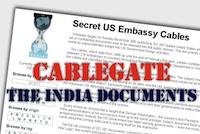 India cables released to The Hindu have created a storm in the past days. Now, The Hindu reports that the US State Department warned the India government of the “existence of such communications on December 23, 2010. Secretary of State Hillary Clinton called External Affairs Minister S.M. Krishna and spoke to Krishna about WikiLeaks. She warned the government of “potentially embarrassing disclosures.”
India cables released to The Hindu have created a storm in the past days. Now, The Hindu reports that the US State Department warned the India government of the “existence of such communications on December 23, 2010. Secretary of State Hillary Clinton called External Affairs Minister S.M. Krishna and spoke to Krishna about WikiLeaks. She warned the government of “potentially embarrassing disclosures.”
On December 21, 2010, then-State Department spokesman P.J. Crowley said, “Those mutual interests are unchanged by any document that has been released by WikiLeaks. We are going to do this one day at a time, one action at a time. The Secretary continues to have regular contacts either in person or in phone calls with world leaders. This issue comes up, and without exception, the leaders reassure her that notwithstanding whatever ripples have been created by these revelations, our relations with these countries will continue because they're important.”
The key cable creating a massive political crisis in India was sent out from Consulate Chennai on May 13, 2009. A US diplomat writes:
The subject of politicians bribing voters, with either cash or gifts, was a recurring theme in the course of covering the 2009 election campaigns in South India. Wherever we went, journalists, politicians, and voters spoke of the bribes as a commonly accepted fact of the election process. Political insiders, and in some instances candidates themselves, admitted to us that candidates regularly violate India's election rules in the course of campaigning for office. This cable examines methods by which political parties bribe voters and how those bribes affect elections in India.
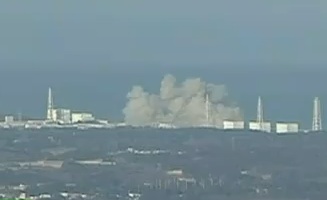 Russian nuclear accident specialist Iouli Andreyev, who helped with cleanup in the aftermath of Chernobyl, said on March 16, “The Japanese were very greedy, and they used every square inch of the space. But when you have a dense placing of spent fuel in the basin, you have a high possibility of fire if the water is removed from the basin.” His comments came as Japan faces a growing nuclear disaster with nuclear reactors leaking and radiation plumes discharging into the atmosphere.
Russian nuclear accident specialist Iouli Andreyev, who helped with cleanup in the aftermath of Chernobyl, said on March 16, “The Japanese were very greedy, and they used every square inch of the space. But when you have a dense placing of spent fuel in the basin, you have a high possibility of fire if the water is removed from the basin.” His comments came as Japan faces a growing nuclear disaster with nuclear reactors leaking and radiation plumes discharging into the atmosphere.
Andreyev put the blame on corporations and United Nations' International Atomic Energy Agency, saying they had “willfully ignor[ed] lessons from the world's worst nuclear accident 25 years ago to protect the industry's expansion.” He condemned the nuclear industry for ensuring Chernobyl was not studied properly.
Japan has been scrambling to contain a nuclear catastrophe ever since an 8.9 earthquake struck last week. As of Wednesday, March 16, a helicopter was unable to drop water on “the most troubled reactor” in the country. Workers left the power plant briefly as radiation levels increased.
In 2007, twelve power companies “admitted to thousands of irregularities in reporting past problems.” Japanese citizens began to resist the building of new nuclear reactors. They pushed for legal actions to suspend operations. Now, US State Cables released by WikiLeaks, which are being published by the Telegraph and The Guardian, further affirm that some sort of coverup has been going on.
Theme by Danetsoft and Danang Probo Sayekti inspired by Maksimer